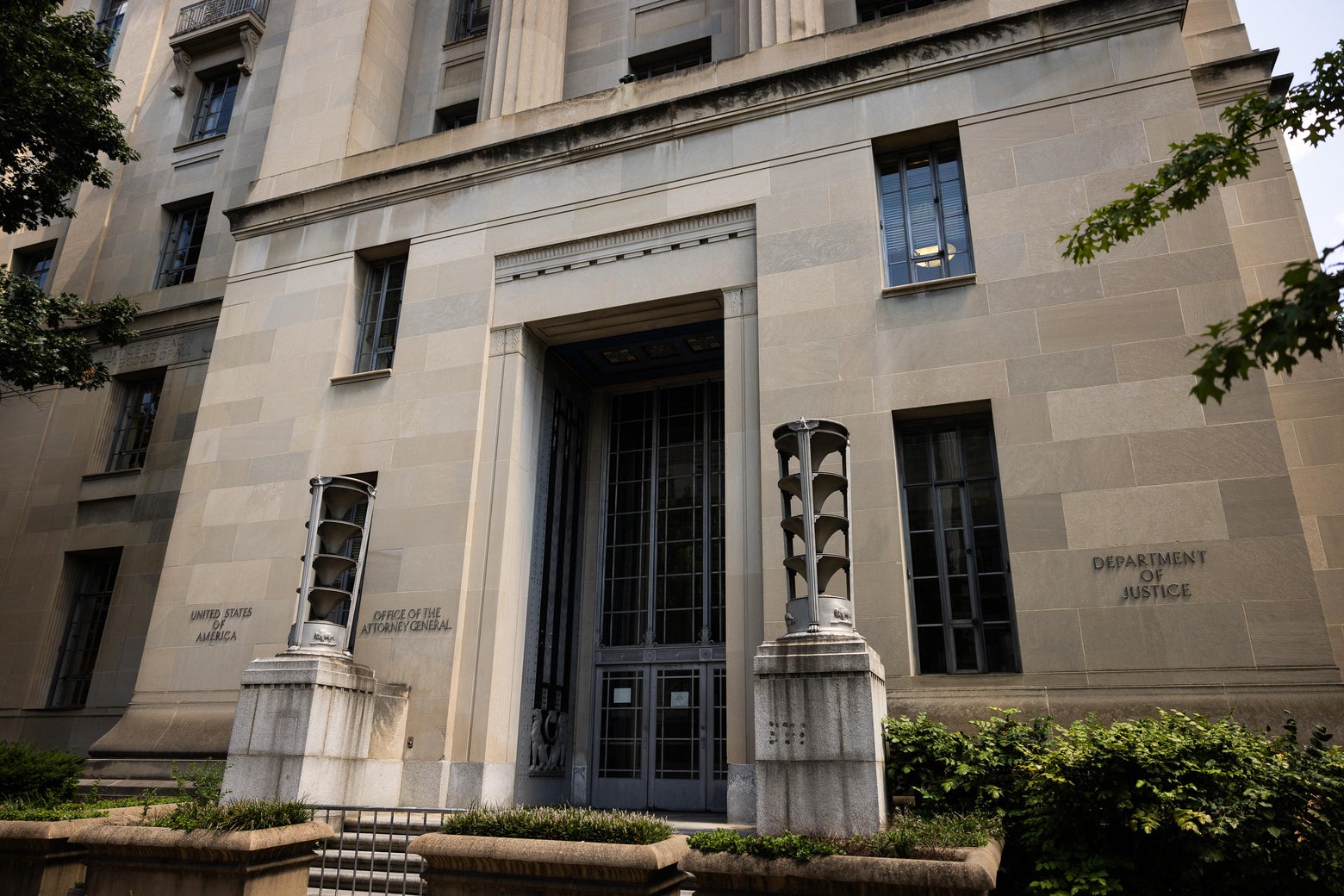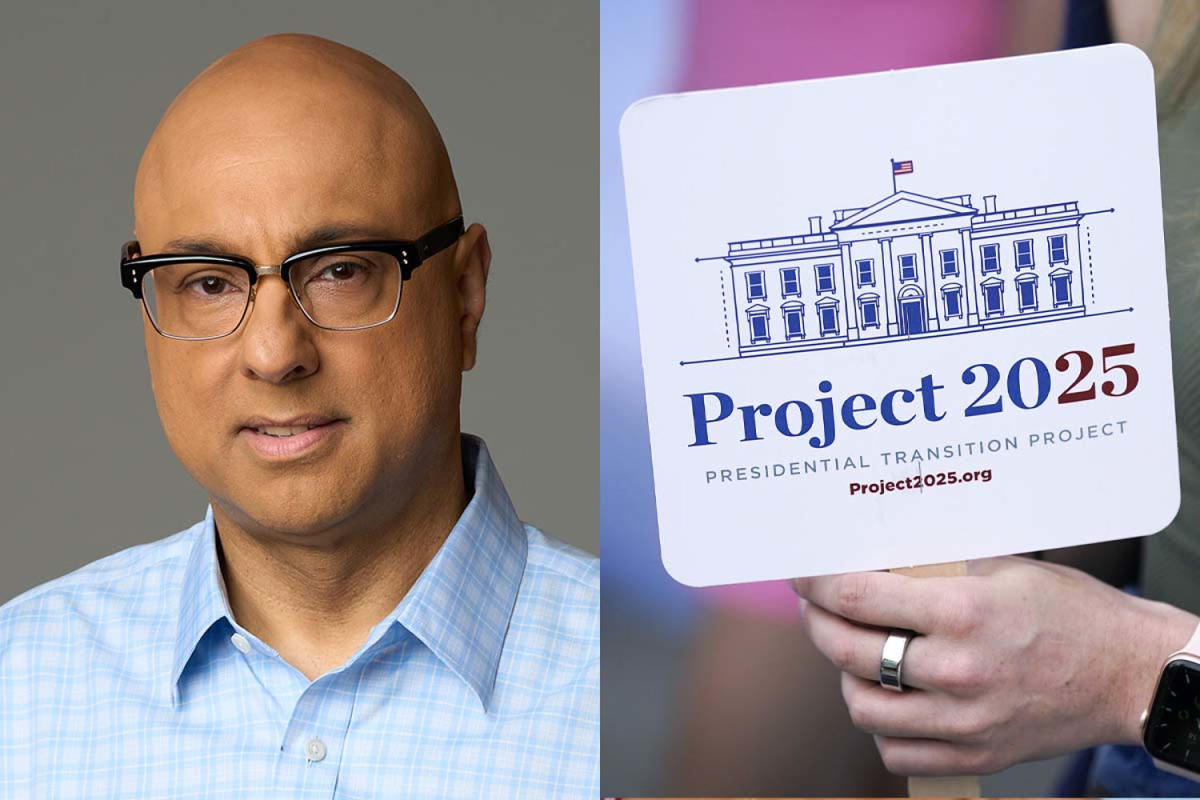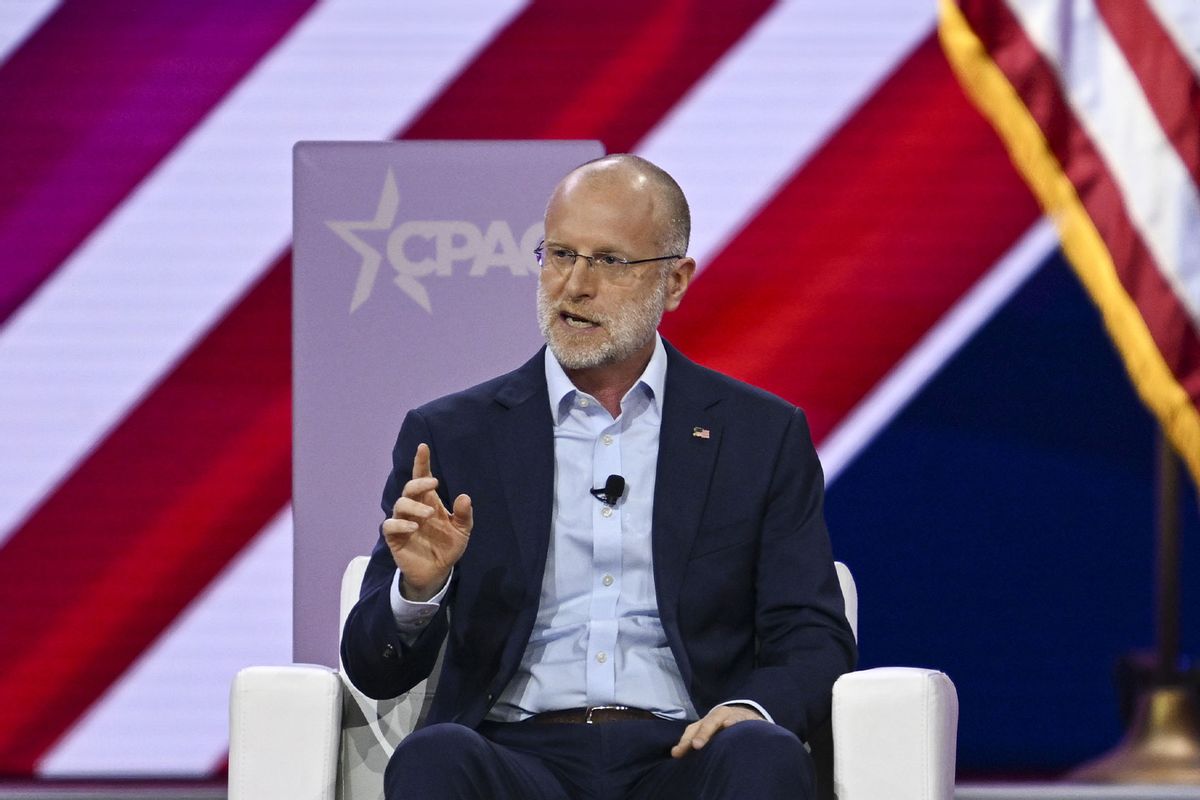Originally by Chris Kaye at www.businessinsider.com
Former President Donald Trump is attempting to distance himself from Project 2025, a political road map created by The Heritage Foundation that lays out steps Republican activists can take during the next presidency to enshrine extreme conservative policies into law and, critics argue, erode the US government’s checks and balances.
But while Trump’s ties to the project are deeper than he admits, some experts on political extremism and pro-democracy activists say one real cause for concern is how the ideology behind the playbook can — and is — moving ahead with or without him.
The architects of the plan will continue to try to push forward its policy goals through the courts and Congress no matter who is elected — and even without Trump’s complete endorsement, issues central to the playbook are already incorporated into his platform.
What does Project 2025 say?
Among the four pillars of Project 2025 is an over 900-page playbook for conservative activists to follow in the first 180 days of the next Republican administration to “bring quick relief to Americans suffering from the Left’s devastating policies.”
The plan includes a wish list of right-wing ideological outcomes, including banning pornography and imprisoning its creators, mass deportations, a ban on abortion medications, firings in the federal branch and cutting some federal agencies outright to “deconstruct the administrative state,” and generally pursuing policies to promote “marriage, work, motherhood, fatherhood, and nuclear families.”
It would also enable an inclined president to take total control of the Justice Department to weaponize it against their enemies, slash climate protections, and eliminate the Department of Education, which oversees the public school system, among other initiatives “to bend or break the bureaucracy to the presidential will.”
Through its website, the project is gathering applications for jobs across each federal agency to pass along to the next Republican administration — from the Department of Agriculture to the Federal Reserve — that can be used as leverage to advance its agenda in the event of a second Trump presidency.
Many roles would be immediately ready to be filled with loyal followers, while other jobs would be cut entirely. Historian and authoritarianism expert Ruth Ben-Ghiat, who is critical of both Trump and Project 2025, argued in a recent Substack article that such cuts would result in “more influence for the ‘inner sanctum’ of sycophants and extremists who, as in regimes everywhere, are the real source of power.”
How Project 2025 ‘runs on autopilot’
According to some critics, among the unique concerns about Project 2025 is the fact that, while the overall objectives would be easiest to achieve under a conservative administration like Trump’s, some of the policy goals laid out in the plan don’t require the direct involvement of the presidency at all.
Angelo Carusone, president of the nonprofit journalism watchdog Media Matters for America, told Business Insider that, though Project 2025 is focused on action at the federal level, it also lays out specific goals that can be advanced by local and state governments, or ruled upon by sympathetic judges.
The Supreme Court, for example, in a series of rulings this term, eroded the power of the executive branch by rolling back the power of administrative positions in the executive branch while strengthening the presidency itself. The rulings — made by a polarized, conservative-majority court — align with Project 2025 policy goals to deconstruct the administrative state and strengthen the “presidential will.”
Ben-Ghiat noted in a recent Substack that “it’s as though these jurists made their decisions with Project 2025 in one hand and an autocrat’s playbook in the other.”
“And so that’s how it sort of runs on autopilot and just moves,” Carusone told BI.
Some members of Congress have already embraced policies that makeup portions of Project 2025’s agenda.
Rep. Thomas Massie of Kentucky has repeatedly introduced measures to abolish the Education Department. Rep. Marjorie Taylor Greene of Georgia in 2022 introduced a measure to make it a felony for physicians to provide gender-affirming care to children and prevent federal healthcare facilities from providing such care.
Ohio Sen. JD Vance — now Trump’s pick for the vice presidential ticket — told Newsweek the project has “some good ideas.” He has previously supported abortion bans without exception for rape and incest, and in June voted against a bill that would have cemented access to in vitro fertilization (IVF).
With even partial control of the legislative and judicial branches, Carusone noted, even if Trump doesn’t win in November, the goals behind Project 2025 can still be pushed forward.
“So you don’t need Trump’s thumb on the scale, or even his direction, because it’s going to move on its own,” Carusone said.
Trump’s close ties to Project 2025
The former president’s proposed policies for his hypothetical second term, Agenda 47, include numerous areas of overlap with Project 2025. Among them are the defunding of the Education Department, instructing federal agencies to end programs that promote sex and gender transition at any age, and the niche promise to reissue Executive Order 13957, which made federal employees easier to fire.
The independent outlet Popular Information first reported that 31 of the 38 people who wrote and edited Project 2025 had been either appointed or nominated to positions in Trump’s first administration or his transition team.
A CNN review found over 140 Trump administration members had contributed to Project 2025. The Washington Post described The Heritage Foundation as a “revolving door for Trump officials.”
After The Heritage Foundation created its “Mandate for Leadership” ahead of Trump’s first term, the conservative group proudly announced that Trump applied 64% of its policy recommendations in the first two years of his presidency, CBS News reported. The recommendations included leaving the Paris Climate Accords, ramping up military spending, and increasing offshore drilling.
In February, Politico reported that Russell Vought, a Project 2025 consultant and president of the conservative think tank The Center for Renewing America, included “Christian nationalism” as among the top priorities for a second Trump term.
Vought, the outlet reported, was the director of the Office of Management and Budget during Trump’s first term and is a likely pick for his Chief of Staff if he’s elected again.
What Trump said about Project 2025 — and its leaders about him
“I have no idea who is behind it,” Trump wrote July 5 on Truth Social. “I disagree with some of the things they’re saying and some of the things they’re saying are absolutely ridiculous and abysmal. Anything they do, I wish them luck, but I have nothing to do with them.”
Danielle Alvarez, a Trump spokesperson, told Business Insider that Agenda 47 and President Trump’s RNC Platform are the only policies endorsed by President Trump for a second term, adding that “Team Biden and the DNC are LYING and fear-mongering because they have NOTHING else to offer the American people.”
Though he denies knowing anything about the project, the playbook mentions Trump’s name more than 300 times.
Kevin Roberts, the president of The Heritage Foundation, noted in a July 10 episode of “The Vince Coglianese Show” that there’s a “tremendous” amount of overlap between Trump’s Agenda 47 and Project 2025 — and the standard Republican platform more generally.
Roberts said there were “no hard feelings from any of us at Project 2025” about Trump’s statement denouncing their agenda, saying “he’s making a political tactical decision there” in response to a swath of bad press about the playbook’s extreme policies.
“I think what you’re going to see is the beginning of a golden era of conservative reform,” Roberts added. “Not just because of President Trump, although he deserves most of the credit, but because the rest of the conservative movement has realized this is the moment if we have the leader and the plan that we’re able to begin to undo all of the wreckage of the radical left of the last several decades.”
Read the Original Story




